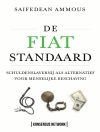Working for Justice, which includes eleven case studies of recent low-wage worker organizing campaigns in Los Angeles, makes the case for a distinctive ‘L.A. Model’ of union and worker center organizing. Networks linking advocates in worker centers and labor unions facilitate mutual learning and synergy and have generated a shared repertoire of economic justice strategies. The organized labor movement in Los Angeles has weathered the effects of deindustrialization and deregulation better than unions in other parts of the United States, and this has helped to anchor the city’s wider low-wage worker movement. Los Angeles is also home to the nation’s highest concentration of undocumented immigrants, making it especially fertile territory for low-wage worker organizing.
The case studies in Working for Justice are all based on original field research on organizing campaigns among L.A. day laborers, garment workers, car wash workers, security officers, janitors, taxi drivers, hotel workers as well as the efforts of ethnically focused worker centers and immigrant rights organizations. The authors interviewed key organizers, gained access to primary documents, and conducted participant observation. Working for Justice is a valuable resource for sociologists and other scholars in the interdisciplinary field of labor studies, as well as for advocates and policymakers.
表中的内容
Foreword by Joshua Bloom
Introduction by Ruth Milkman Part I: Worker Centers, Ethnic Communities, and Immigrant Rights Advocacy Chapter 1. The Koreatown Immigrant Workers Alliance: Spatializing Justice in an Ethnic ‘Enclave’
by Jong Bum KwonChapter 2. Organizing Workers along Ethnic Lines: The Pilipino Workers’ Center
by Nazgol GhandnooshChapter 3. Alliance-Building and Organizing for Immigrant Rights: The Case of the Coalition for Humane Immigrant Rights of Los Angeles
by Caitlin C. PatlerChapter 4. Building Power for ‘Noncitizen Citizenship’: A Case Study of the Multi-Ethnic Immigrant Workers Organizing Network
by Chinyere Osuji Part II: Occupational and Industry-Focused Organizing Campaigns Chapter 5. The Los Angeles Taxi Workers Alliance
by Jacqueline Leavitt and Gary BlasiChapter 6. From Legal Advocacy to Organizing: Progressive Lawyering and the Los Angeles Car Wash Campaign
by Susan Garea and Sasha Alexandra SternChapter 7. NDLON and the History of Day Labor Organizing in Los Angeles
by Maria DziembowskaChapter 8. The Garment Worker Center and the ‘Forever 21’ Campaign
by Nicole A. Archer, Ana Luz Gonzalez, Kimi Lee, Simmi Gandhi, and Delia Herrera Part III: Unions and Low-Wage Worker Organizing Chapter 9. Ally to Win: Black Community Leaders and SEIU’s L. A. Security Unionization Campaign
by Joshua BloomChapter 10. From the Shop to the Streets: UNITE HERE Organizing in Los Angeles Hotels
by Forrest StuartChapter 11. The Janitorial Industry and the Maintenance Cooperation Trust Fund
by Karina MuñizAfterword by Victor NarroNotes
References
About the Contributors
Index
关于作者
Ruth Milkman is Professor of Sociology at UCLA and the CUNY Graduate Center and Associate Director of the Murphy Labor Institute at CUNY. She is coeditor of Rebuilding Labor and editor of Organizing Immigrants, both from Cornell, and author of L.A. Story: Immigrant Workers and the Future of the U.S. Labor Movement. Joshua Bloom is a Ph.D. candidate in sociology at UCLA and coauthor of the forthcoming Black against Empire: The Rise and Fall of the Black Panther Party. Victor Narro, J.D., is Project Director of the UCLA Downtown Labor Center.












